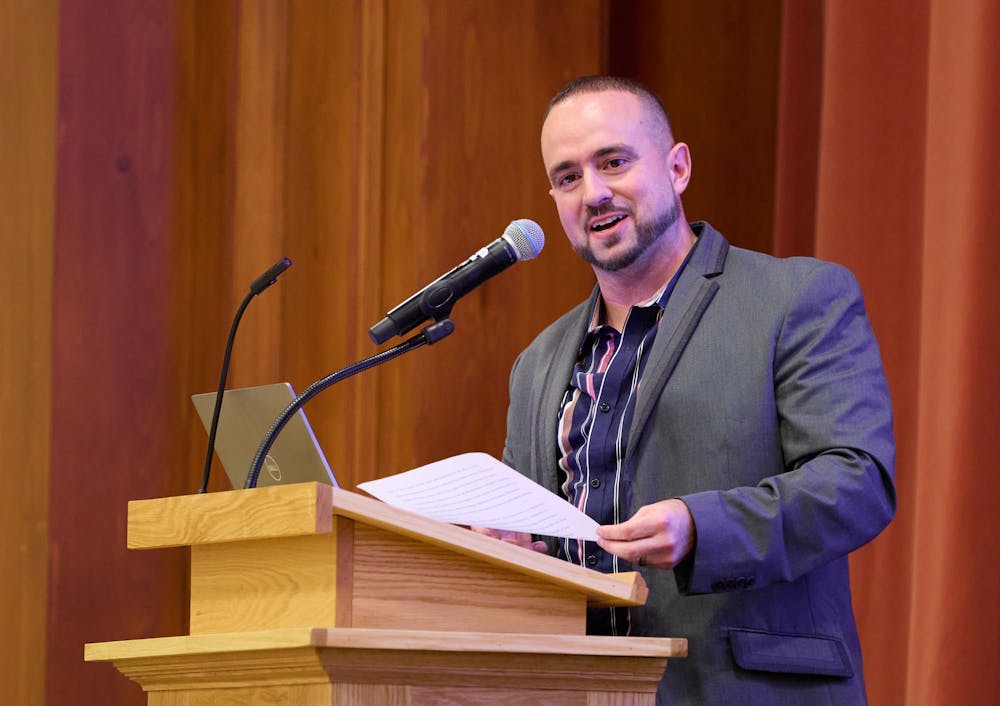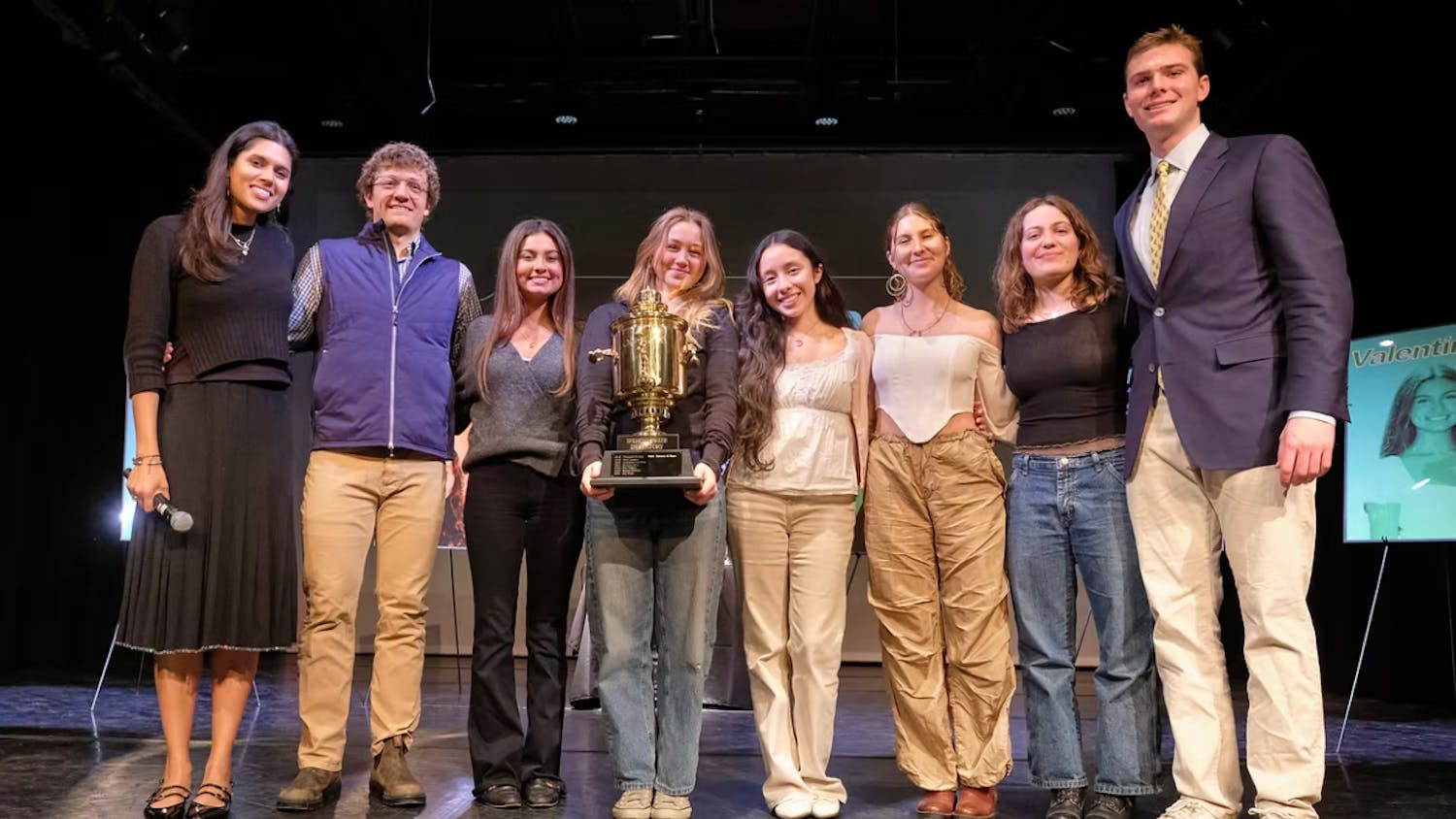For the bicentennial of Alexander Lucius Twilight’s graduation from Middlebury, this year’s Clifford Symposium focused on his life and topics related to race, colonization and the college’s Twilight Project. Alexander Twilight was the first person of African descent to graduate from an American college and to be elected to a state legislature, which he did in Vermont.
The Clifford Symposium, named in honor of Professor of History Emeritus Nicholas R. Clifford, is an annual event put on by the college that explores a different topic each year through lectures and discussions. It is typically the first academic event of the year and took place between Sept. 21 and 23 this year.
This year’s topic was chosen to feature the work of the Twilight Project and mark the 200th anniversary of Alexander Twilight’s graduation from Middlebury, as well as his 238th birthday, according to Professor Daniel Silva, director of the Black Studies Program, director of the Twilight Project and co-organizer of this year’s Clifford Symposium.
“That was the goal of this year’s symposium, utilizing the occasion to discuss the complexities of Twilight’s life and racialization while also naming and contemplating the complicated relationships/complicities between institutions of higher education and systems of racial oppression, dispossession, marginalization, and archival erasure,” Silva wrote in an email to The Campus.

Twilight’s legacy as the first person of African descent to graduate from a college in the United States continues to be promoted by Middlebury today. However, Middlebury’s role as the college that did so is complicated by his ambiguous racial identity and the fact that the college most likely did not know that he was of African descent when they admitted him, according to Silva.
“The ‘truth’ of Twilight’s racial identity continues to be explored and debated, particularly in terms of how he publicly and privately identified, but I think we need to be attentive to how his story is constructed by particular institutions and powers, like Middlebury,” Silva wrote.
In addition to faculty speakers, the symposium featured students presenting projects they have done as a part of the Twilight Project, which aims to explore the histories of exclusion and marginalization at Middlebury.
“Through this three-year initiative we have looked to uncover, honor and do justice to the lives and experiences of underrepresented identities at the College as well as the structures and expressions of marginalization that they have encountered here,” Silva wrote. “Across fourteen research projects led by our brilliant and relentless students, the Twilight Project has sought to both uncover as well as work toward archiving aforementioned experiences and the critical voicings and articulations they bring forth.”
Students involved with the Twilight Project spoke at the symposium about their projects on the morning of Friday, Sept. 22. Mars Etgu ’26 was a part of the panel. They collaborated on a research project on the connection between Middlebury and the Middle East to study the history of Middle East relations and media coverage of the region at Middlebury as well as an investigation into Middle Eastern students on campus and their political and self-advocacy.
“I was really excited to be involved to show off some of me and Kaveh Abu Khaleel (my research partner)’s findings from the Middlebury archives and how we can use those insights today,” Etgu wrote in an email to The Campus.

The Twilight Project began in 2020, and has supported the research of over a dozen students in the past three years. Current Admissions Counselor Jordyn Johnson ’23 worked on the Twilight Project for two years while a student at the college. She contributed to the project on Histories of BIPOC Athletes at Middlebury, which records histories and experiences of the challenges BIPOC athletes face at the college.
“It was really cool to work on since we got to talk to alums across so many years and see how the Middlebury experience changed or has remained the same,” Johnson said. “We spoke to alums from 1979 and as recent as 2022, so we had quite the range of experiences across years.”
Johnson attended some of this year’s Clifford Symposium events because the topics interested her after having worked on the Twilight Project.
“It was interesting to see different types of presentations around Twilight,” Johnson said. “Despite working on the Twilight Project for two years I didn't know how Middlebury College learned that Alexander Twilight was not white following his graduation.”
Johnson added that she also learned at the symposium that Twilight was identified as non-white through the 1800 and 1810 censuses in which he was categorized as “all other free persons, except Indians not taxed.”
Middlebury Professor Emeritus of History Bill Hart is currently working on a biography of Alexander Twilight.
“[Hart] believes that Twilight was most likely one-quarter Black,” according to a Sept. 20 Seven Days article on Twilight and this year’s Clifford Symposium. “Hart has found no evidence that anyone who interacted with Twilight throughout his college and professional lives considered him Black.”
Until 1974, Twilight’s race was ambiguous in college records. This changed when then-editor of the Middlebury College Newsletter Gregor Hileman reviewed census data and discovered how Twilight was categorized with the label used for free Black Americans at the time.
“Hart suspects that in 1800, a census taker saw Twilight's father, Ichabod, who likely had darker skin, and concluded that the family was Black,” Seven Days reported.. Twilight was recorded as Black in the 1800 and 1810 censuses, but in every census thereafter was categorized as white.
Seven Days also reported that 11 years later, the college refused admission to a Black student named Andrew Harris.
Silva said that these issues were discussed in detail at the symposium. He saw the event’s focus on Twilight as a springboard for Middlebury to continue to address the marginalization that takes place on campus instead of simply applauding itself for graduating the first student of African descent from an American college.
“I think we have to be critical and wary of how Twilight has been narrated and for what purposes,” Silva wrote. “For decades and still today, many use the narrative of Twilight as the first person of African descent to graduate from a U.S. college to prop up Middlebury as a progressive institution. However, as history shows, the college probably would not have allowed him to enroll had they known he was of African descent.”

Susanna Schatz ‘24 (she/her) is the Senior News Editor.
She previously served as Local Editor, Staff Writer, and Visuals Artist for The Campus. She is an English major and Gender, Sexuality, and Feminist Studies minor.
Susanna is the social media and marketing intern for a small business started by Midd Alums, Treeline Terrains. In her free time you’ll find her taking in the Vermont outdoors hiking, swimming, skiing, reading in an Adirondack chair, or painting the scenery.




